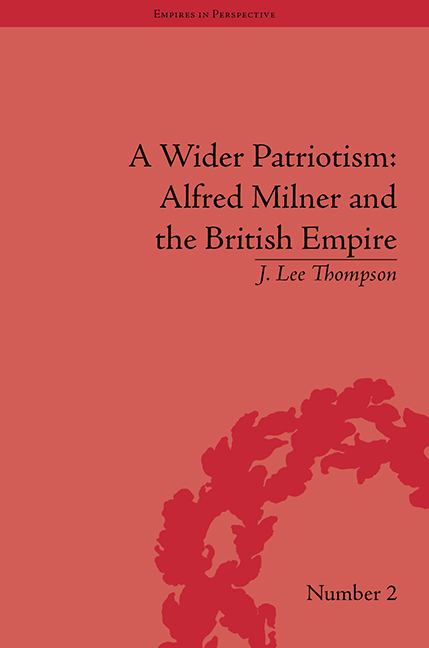Book contents
- Frontmatter
- CONTENTS
- Preface
- Acknowledgments
- Part I A Question about Which I Have Never Been Able to See the Other Side
- Part II Civilian Soldier of the Empire: South Africa
- Part III Constructive Imperialism
- Part IV Imperialism on the Anvil
- 11 The Empire at War
- 12 Imperial War Cabinet
- 13 An Imperial Peace
- 14 Egypt Again: The Milner Mission and After
- 15 Conclusion: A Wider Patriotism
- Notes
- Works Cited
- Index
12 - Imperial War Cabinet
from Part IV - Imperialism on the Anvil
- Frontmatter
- CONTENTS
- Preface
- Acknowledgments
- Part I A Question about Which I Have Never Been Able to See the Other Side
- Part II Civilian Soldier of the Empire: South Africa
- Part III Constructive Imperialism
- Part IV Imperialism on the Anvil
- 11 The Empire at War
- 12 Imperial War Cabinet
- 13 An Imperial Peace
- 14 Egypt Again: The Milner Mission and After
- 15 Conclusion: A Wider Patriotism
- Notes
- Works Cited
- Index
Summary
On 9 December 1916 Milner joined Bonar Law, George Curzon, and the Labour party representative Arthur Henderson for the first official meeting of Lloyd George's new War Cabinet of five. The British Citizen and Empire Worker welcomed the new Government, noting that chief among Lloyd George's ‘General Staff ’ was Lord Milner ‘who brings to the Government an experience in administration … a freedom from class bias … and an undemonstrative but ardent desire for social reform and industrial reorganization which make him after Mr. Lloyd George, the outstanding figure’. From Canada, Glazebrook confessed his delight at Milner's new role and that he had ‘an internal conviction that most of the real work will fall to you’.
To serve the new Government, the old War Committee staff was reborn as the War Cabinet Secretariat, as before under Sir Maurice Hankey. As Milner insisted, Amery was chosen as one of the Secretariat's two political secretaries. He and his colleague, Sir Mark Sykes MP, had the status of parliamentary under-secretaries. They were at the disposal of the War Cabinet, but also free to submit ideas. Amery, whom Hankey soon described as a ‘scheming little devil’ that Milner had ‘foisted on me’, soon raised the ire of Walter Long, at the Colonial Office, with a plan to circumvent the normal channels of communications with the dominions.
A separate secretariat was created for the Prime Minister, housed in huts in the gardens of 10 Downing Street, and dubbed the ‘Garden Suburb’. This was headed by W. G. S. Adams, the Gladstone Professor of Political Theory and Institutions at Oxford, who had been doing wartime work at the Ministry of Munitions. The original membership included also Waldorf Astor and Philip Kerr. It was not long before the Secretariat's sinister connections with Milner were exposed in Liberal press jeremiads, beginning a long-lived myth of ‘Milnerite penetration’ behind the scenes belied by the reality of the situation. In the Nation H. W. Massingham warned: ‘These gentlemen stand in no sense for a Civil Service Cabinet.’
- Type
- Chapter
- Information
- A Wider PatriotismAlfred Milner and the British Empire, pp. 160 - 169Publisher: Pickering & ChattoFirst published in: 2014



